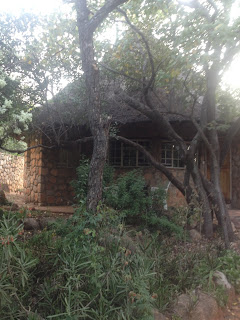On my publisher's advice, I set up a Bookbub account to promote my books. This involves linking the kindle version of This September Sun with Bookbub. For the first time in a very long time, I have a look at readers' reviews of This September Sun. I used to look at them almost every day, revelling in the positive ones and writhing in agony over the negative ones. I have on more than one occasion wanted to contact the reviewer to give them a piece of my mind.
Writing a book is no mean feat and, perhaps especially in the case of fiction, it is very personal. It is not just the hours that go into writing the book, but it's the anguish: the lying awake at night planning what happens next, the rewriting of a scene or a chapter, the times when you cannot think of one thing to say, when you just feel like giving it all up. When someone criticises your novel, it's like listening to a tirade of abuse from your child's teacher, being told how stupid or limited they are. It's not something you take lightly.
Of course, the person on Amazon doesn't know me at all; they are just expressing their opinion which they are free to do. However, there are some comments that annoy me, such as 'no mention of wild animals' or 'very narrow in its coverage of life in Zimbabwe' or, the best yet, 'I had hoped to learn more about Mugabe from reading this book and I was very disappointed.' Comments like this only serve to show the narrowness of Western perceptions of life in Africa. Any book set on the continent must include the roar of lions, wildebeest striding majestically across the plains or poverty, famine and slum life.
These are the things that Western readers might look for and expect, but this is not the only side to life in Africa. The very point of This September Sun was to capture the narrowness of colonial life and also to show how much our lives were shaped by British culture. There may be dust, but there are also gardens stocked with English flowers; there may be poverty, but this is also structure; there may be hunger, but there are also beautiful tree-lined streets, roads named after long-dead British prime ministers, poets and empire builders, and parks, museums and art galleries. Africa is not paused interminably in the world of Isak Dinesen but nor is it the Africa of Things Fall Apart. We are a mixture of so many things and this is what our literature needs to strive to depict: the shades of reality, not one fixed and ultimately flawed, view.

No comments:
Post a Comment